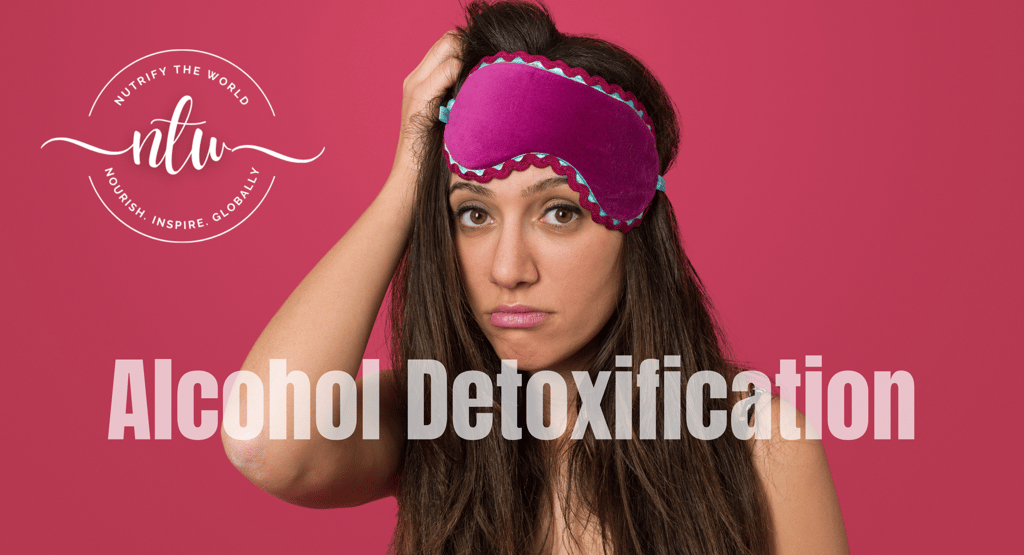Practical Tips for Alcohol Detoxification
If you love someone who is an alcoholic, or you are struggling with your own alcohol problem, you may be interested in the process of alcohol detoxification. Alcohol withdrawal symptoms can range from uncomfortable to life threatening, depending on the severity of the addiction, and detoxification can help with this process.


Alcoholism is a serious concern in today's wor, where social drinking habits are often mixed with family and cultural dynamics. Whether you love someone who struggles with alcohol dependency or face the challenge of overcoming your own alcohol addiction, understanding the process of alcohol detoxification can be crucial in navigating the journey to sobriety. Detoxification, or "detox," is the first significant step in treating alcohol addiction, and it involves eliminating alcohol from the body while managing withdrawal symptoms. Here's a comprehensive guide on alcohol detox, designed to provide practical tips for Indian readers.
What is Alcohol Detoxification?
Alcohol detox is the process of removing alcohol from the body and managing the often difficult withdrawal symptoms that come with it. When someone who is dependent on alcohol suddenly stops drinking, the body reacts to this absence, which can range from mild discomfort to life-threatening conditions. This is why alcohol detox, especially for those with severe addiction, often requires medical assistance to make the process safer and more manageable.
In medical detox programs, a limited course of medication is typically prescribed to help ease withdrawal symptoms. The most commonly used medication in alcohol detox is Chlordiazepoxide. While many may prefer to avoid medications, in the case of alcohol detox, they can be highly effective in preventing dangerous withdrawal effects and facilitating recovery.
The Detoxification Process
The detoxification process usually lasts about a week. The treatment is designed so that the highest dosage of medication is given on the first day when withdrawal symptoms are the most intense, and then the dosage decreases over time. During detox, the individual must completely avoid alcohol and be under close supervision, often by medical professionals, for safety.
Here are some of the common withdrawal symptoms:
Mild symptoms: Sweating, cravings for alcohol, nervousness, and trembling.
Severe symptoms: Delirium tremens (DTs), hallucinations, and even convulsions in a small percentage of patients.
Medical detox programs work to minimize these symptoms and make the process safer for the individual. However, it's important to recognize that detox only addresses the physical aspect of addiction. For long-term recovery, additional support and treatment are necessary.
The Role of Medications in Detox
In an ideal world, we would want to avoid using medications, but in the context of alcohol detoxification, they can be life-saving. One of the reasons medical detox is critical, especially for heavy drinkers, is the risk of severe withdrawal symptoms, such as seizures or delirium tremens (DTs). Medications like Chlordiazepoxide help the body transition from alcohol dependency to sobriety without severe complications.
Once the detox is complete, additional medications may be prescribed to help reduce cravings or prevent relapse:
Acamprosate: Reduces alcohol cravings and helps maintain abstinence after detox.
Disulfiram: Causes unpleasant side effects (nausea, vomiting) when alcohol is consumed, acting as a deterrent for relapse.
These medications, combined with counseling and support, can provide a more robust framework for recovery.
Psychological and Emotional Support Post-Detox
It is important to understand that detox only solves the physical dependence on alcohol. The psychological and emotional cravings for alcohol can persist long after the detox process. This is where counseling, therapy, and peer support programs like Alcoholics Anonymous (AA) come into play.
Alcoholics Anonymous is a worldwide fellowship of individuals who have had a drinking problem. In India, there are various local AA groups across major cities, offering support through their well-known 12-step program. This model of recovery is often recommended after detoxification because it provides a structured and communal approach to sobriety.
Counseling, on the other hand, focuses on addressing the psychological and emotional reasons behind the addiction. A professional therapist can help an individual identify triggers, manage stress, and build healthier coping mechanisms. For many, alcohol becomes a way to cope with life's challenges, and counseling provides the tools needed to face these challenges without turning to alcohol.
Supporting a Loved One through Detox
If someone you love is going through alcohol detox, your support can make a significant difference. Here are some practical tips for helping someone during the detox process:
Be Empathetic and Non-Judgmental: The person undergoing detox may feel ashamed, anxious, or overwhelmed. Offer your support by listening and reassuring them that you are there for them throughout the process.
Help Them Access Medical Care: Encourage them to seek medical supervision for detox, as unsupervised withdrawal can be dangerous. If necessary, help them find a detox program or a doctor who specializes in addiction treatment.
Assist with Their Daily Routine: Detox can be physically draining. Help with daily chores, preparing meals, or managing appointments so they can focus on recovery.
Encourage Continued Treatment: Detox is only the first step. Encourage your loved one to follow through with counseling, support groups, and any medication prescribed for aftercare.
Cultural Considerations
In India, alcohol addiction carries a significant social stigma. Many individuals and families feel reluctant to seek help due to societal pressures, shame, or fear of being ostracized. This makes it even more important to raise awareness about the medical and emotional benefits of seeking help.
Additionally, it’s common in Indian households for family members to play an active role in the health and recovery of loved ones. While this can be a source of strength, it is essential to approach the situation with understanding and avoid any blame or anger. Alcoholism is a medical condition, not a moral failing, and treating it as such can help remove the stigma that prevents so many people from seeking the help they need.
Relapse Prevention and Aftercare
After completing detox, one of the most challenging parts of recovery is avoiding relapse. Relapse prevention strategies are vital for maintaining sobriety in the long run. Here are a few tips:
Build a Support Network: Surround yourself with people who encourage sobriety. Joining a local support group or reconnecting with sober friends can help create a safe and supportive environment.
Identify Triggers: Stress, certain social situations, or even emotional states like loneliness or sadness can trigger a desire to drink. Work with a therapist or counselor to identify your triggers and develop coping strategies.
Stay Physically Active: Exercise can play a big role in recovery. Regular physical activity helps reduce stress, improves mood, and promotes overall health, making it easier to stay sober.
Adopt New Hobbies: Finding new interests and hobbies can be an effective way to fill the void left by alcohol. Whether it’s picking up yoga, art, or volunteering, staying engaged in positive activities keeps the mind occupied and focused on recovery.
Follow Medical Advice: If medications have been prescribed, make sure to take them as directed. Medications like Acamprosate or Disulfiram can be crucial in preventing relapse.
Seeking Help is a Sign of Strength
There is no shame in seeking help for an alcohol problem. Alcohol addiction is a serious health condition that requires treatment, just like any other illness. If you or someone you love is struggling with alcohol, talk to a healthcare professional about detox programs and counseling services.
In India, there are several detox centers, both government and private, that offer medical supervision and support. Family doctors, psychiatrists, or addiction specialists can guide you through the process and help with referrals to the right programs.
Remember, recovering from alcoholism is a journey, and it is often not a straight path. There may be setbacks along the way, but with the right support and resources, recovery is possible. Taking that first step by acknowledging the problem and seeking help is the most important move toward a healthier and happier life.
Alcohol detoxification is a critical first step in overcoming alcohol dependency. While it can be uncomfortable or even dangerous without medical supervision, with the right help, it can be managed safely. Detox should always be followed by counseling, support groups, and, if necessary, medications to ensure a complete recovery. Whether you're supporting a loved one or struggling with alcohol yourself, the most important thing is to reach out for help and take advantage of the support systems available. Sobriety is possible, and taking the first step towards detox is the key to a better, healthier life.
Disclaimer:
The information provided on NutrifyTheWorld blog is for educational and informational purposes only. It is not intended as a substitute for professional medical advice, diagnosis, or treatment. Always seek the advice of your physician or other qualified health provider with any questions you may have regarding a medical condition. Never disregard professional medical advice or delay in seeking it because of something you have read on NutrifyTheWorld blog. The opinions expressed by the experts in this article are their own and do not necessarily reflect the views of NutrifyTheWorld or its affiliates. Product recommendations are based on research and personal experiences, but individual results may vary. Before using any product mentioned on NutrifyTheWorld blog, please read the label and consult with a healthcare professional to ensure it is suitable for your specific needs and conditions. We do not endorse or promote any specific brand or product mentioned on NutrifyTheWorld blog. Any reliance you place on the information provided is at your own risk. NutrifyTheWorld shall not be liable for any loss or damage arising from the use of information on its blog.


